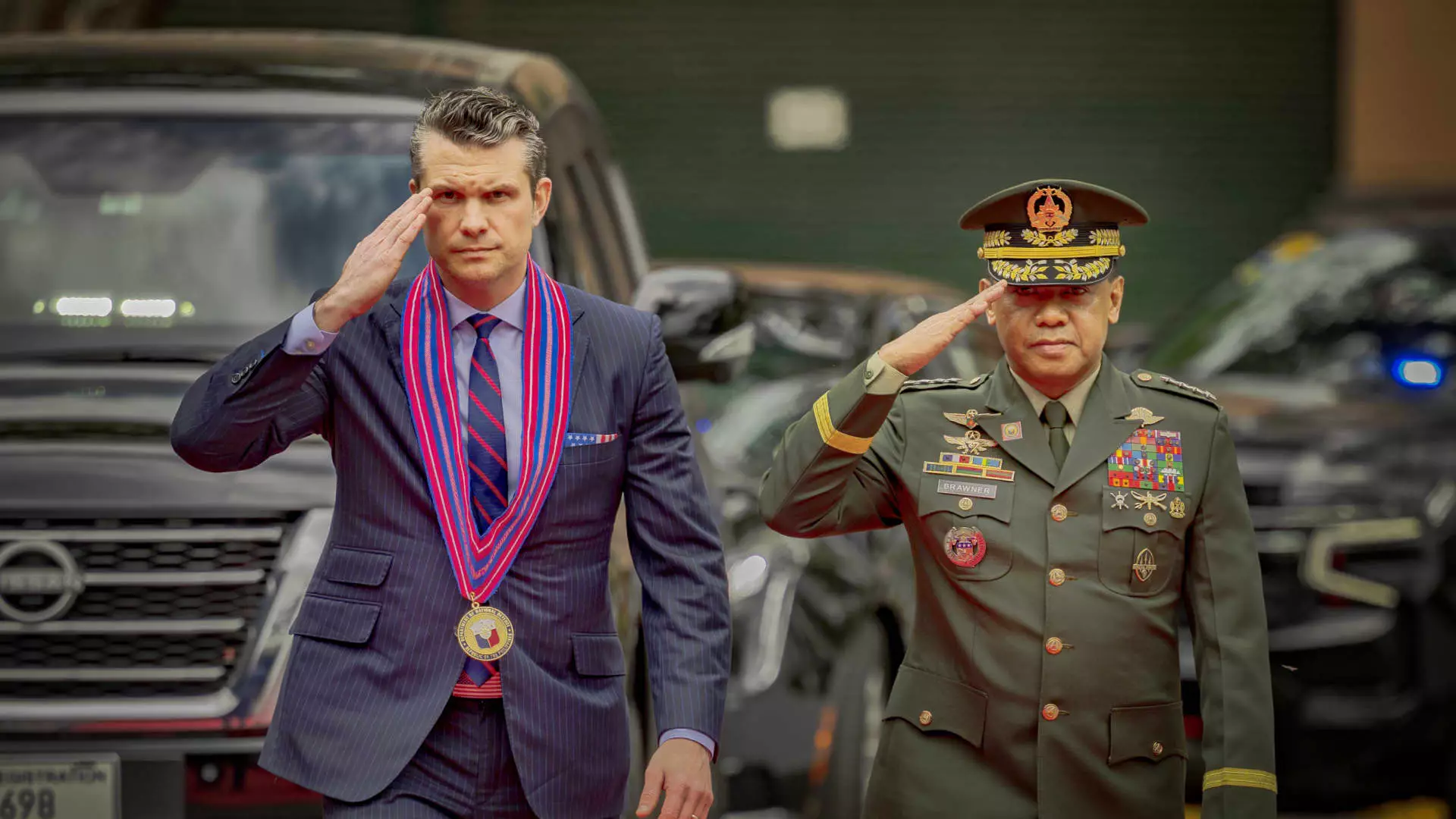In the ever-evolving landscape of international relations, U.S. Defense Secretary Pete Hegseth recently underscored Japan’s critical role in combating the aggressive posture of China. Describing Japan as an “indispensable partner,” Hegseth highlighted the need to upgrade U.S. military command in the nation. This sentiment reinforces a broader strategy aimed at encircling Chinese power, particularly as tensions escalate around the Taiwan Strait. However, one must question whether this reliance on Japan as a “cornerstone of peace and security in the Indo-Pacific” might inadvertently deepen regional hostilities rather than mitigate them.
The announcement of a revamped military command structure, which is designed to enhance coordination between U.S. and Japanese forces, raises significant concerns about entanglement in conflicts that could spiral out of control. While Washington positions itself in a role of leadership against a perceived Chinese threat, it is vital to evaluate whether such strategies genuinely serve the interests of regional stability or simply pivot the bipolar competitive dynamic into the heart of the Indo-Pacific, igniting what may soon become a full-blown arms race.
Japan’s Military Expansion: A Double-Edged Sword
Japan’s recent decision to double its military spending provides a stark indication of a nation quickly transitioning from its post-war pacifism to a more militarized stance. Aiming to acquire longer-range missiles, Japan seems ready to break the shackles of its U.S.-imposed constitutional constraints. Under the current global climate, this might be perceived as a prudent enhancement of national security. However, it evokes the question of whether this military expansion is a necessary measure or an aggressive response that might provoke China.
The balancing act Japan faces is delicate. On one hand, bolstered defense capabilities may help safeguard against assertive Chinese maneuvers; on the other, it may further antagonize a nation ready to assert its role as a dominant regional power. A military-infused foreign policy could all too easily transform Japan into a primary target, rather than a partner, in a conflict-driven narrative.
Divergent Paths: The U.S. and European Allies
Hegseth’s praise of Japan starkly contrasts his previous criticisms directed towards European allies. His insinuation that the U.S. presence in Europe might dwindle over time reflects a worrying inconsistency in U.S. foreign policy that could foster tensions on multiple fronts. If America’s commitment to European defense alliances is wavering, what does that signal to countries like Japan, who are relying on U.S. support against an increasingly assertive China?
Should Japan be contemplating its self-defense strategy based on the reliability of American support? A commitment so dependent on a single ally is fraught with risk and may force Tokyo to reconsider how it projects its military power. A possibility exists that rather than benefiting from a tighter U.S.-Japan partnership, Japan could end up taking on more risks than it can afford.
Technological Collaboration: A Necessary Step Forward
The agreement between Hegseth and Japanese Defense Minister Gen Nakatani to collaboratively produce advanced munitions such as AMRAAM missiles represents a significant step in military collaboration. However, it is equally essential to analyze the implications of such technological partnerships. As both nations bolster their military might, it raises questions of responsible governance over arms production and distribution.
Such developments can increase military capabilities but could also set the stage for unforeseen consequences. The potential for these weapons to end up in the hands of less scrupulous players should raise alarm bells among policymakers. The crux lies in ensuring that such innovations do not serve to further ignite tensions already simmering in a geopolitically fraught region.
The Information Dilemma: A Note on Leadership Integrity
During his trip to Asia, Hegseth has found himself embroiled in controversy regarding the leaking of sensitive information. The reports of him texting about impending U.S. military strikes have not only overshadowed his diplomatic visit but also raise fundamental questions about leadership integrity. If defense leaders cannot secure their communications, punctured trust could undermine military alliances that depend on confidentiality.
The efficacy of a partnership built on trust can only be maintained if its leaders exhibit sound judgment and integrity. Transparency and accountability must be at the forefront, especially when facing formidable adversaries. As such, Hegseth’s incident calls into question not just his personal accountability, but the robustness of a military strategy that relies heavily on steadfast communication.
In the ever-turbulent sea of international relations, maintaining a coherent stance against aggressive powers like China requires not just military might but principled leadership and responsible governance.

Leave a Reply